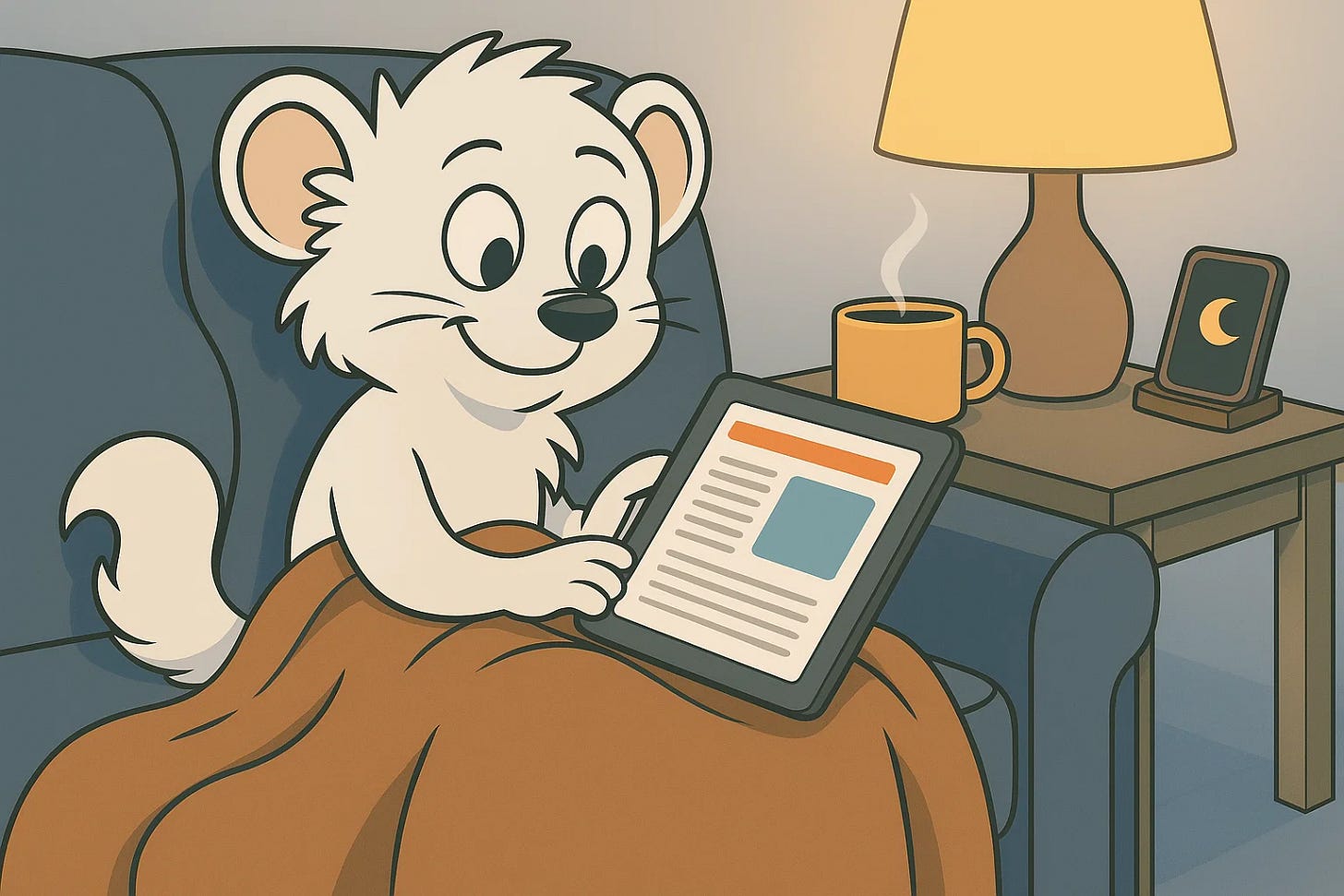The digital habit that finally gave me more than just short dopamine hits
Consuming content that feeds you, not the algorithm.
You promise yourself just five minutes on TikTok, but one video leads to another and suddenly an hour’s gone. Your brain is buzzing and hope of sleep is out the window.
This spiral is familiar to ADHDers. You grab your phone for a quick hit and end up doomscrolling until you feel anxious and drained. Guilt sinks in as you realize you’ve lost hours to the endless feed.
That trap has swallowed too many of my evenings, but lately I’ve been trying something new to break out of it. Not always perfect, but enough to notice a real difference. I call it a slow content diet, an intentional way to consume media that leaves me feeling good instead of bad.
If you’re nodding along, you’re not alone. ADHD brains are wired to seek novelty and stimulation, and the internet serves it up endlessly. Of course we get hooked. If you’ve been beating yourself up for marathon scrolling sessions, take a breath. This struggle is common, and it makes sense given how our brains and the digital world are wired.
Slow content that satisfies
The heart of a slow content diet is choosing formats with a clear beginning and end. Think one newsletter essay, one podcast episode, one chapter of an audiobook, one long article you actually finish. You can include a long YouTube video or documentary style piece, but skip Shorts. These formats end on their own, so you are not dragged into the next hit.
What can count as slow content: newsletters like Substack essays, print or ebook chapters, long blog posts, curated email digests, single podcast episodes, audiobooks by chapter, long YouTube videos or lectures, documentaries, even a set of saved Pinterest ideas that you open on purpose and close when done. If you like Reddit, read a specific thread you choose, not the infinite front page. The common theme is finite. You pick it. You finish it. Then you stop.
I worried I would be bored at first. I wasn’t. One night I swapped my usual late scroll for a 20 minute podcast while stretching. Another night I read one long essay and then went to bed on time. The feeling after was clean. No hangover. Just done.
What the diet includes in practice
This is where I made the biggest change. I removed the easy dopamine traps from my phone. I deleted Instagram, Facebook, and YouTube because Reels and Shorts grabbed me every time. If I want YouTube now, I watch a single long video on my laptop, not the phone. The friction helps. I kept Pinterest, Substack, and yes, occasional Reddit, because reading slows me down and it is easier to stop. I also added a library audiobook app for walks, and a read later list in my Notes App so articles wait for me instead of chasing me.
Your version might look different. Build your plate like this:
A small daily portion of long form, one essay or one podcast.
A couple of saved topics you care about, recipes, gardening, art, history, anything that feeds your curiosity without chaos.
One or two calm inputs by default in the evening, an audiobook chapter, a printed magazine, a long video that ends.
Clear edges around each item. When it ends, you end.



